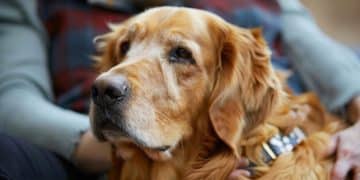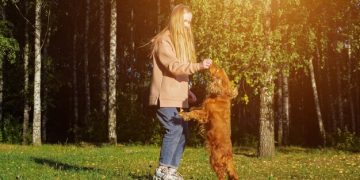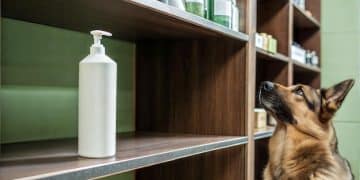Urgent FDA Recall: Check Your Pet Food for Salmonella Now!
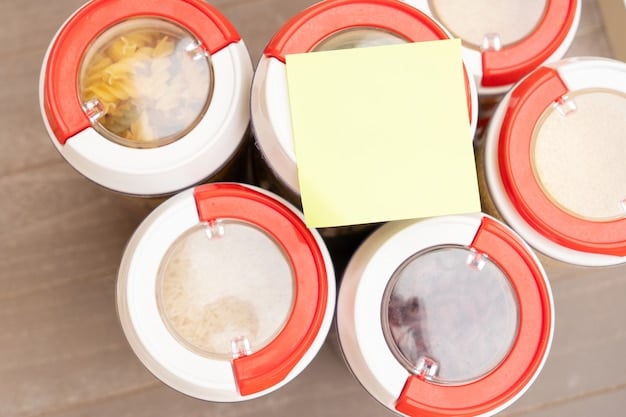
An urgent FDA recall has been issued for a popular pet food brand due to potential Salmonella contamination, posing a health risk to pets and humans; pet owners are urged to check labels immediately and take necessary precautions.
The Food and Drug Administration (FDA) has announced an urgent alert: FDA recall of popular pet food brand due to Salmonella contamination. This recall is critical for pet owners to be aware of to protect both their animals and themselves from potential health risks. Salmonella can cause serious illness in pets and can also be transmitted to humans who handle contaminated food or interact with infected animals.
Urgent FDA Announcement: Pet Food Recall
The FDA’s recent announcement regarding a pet food recall has sent ripples of concern through the pet-owning community. Understanding the specifics of this recall and the potential dangers of Salmonella is vital for ensuring the health and safety of your beloved companions.
This recall isn’t just a matter of inconvenience; it’s a serious health issue that could have severe consequences. Let’s delve into the details of the FDA’s announcement and what it means for you and your pets.
Why is the FDA involved in pet food recalls?
The FDA plays a crucial role in regulating pet food to ensure it meets safety standards and is free from harmful contaminants. Their involvement in recalls underscores the importance of vigilant oversight to protect animal health.
What are the potential consequences of ignoring this recall?
Ignoring a pet food recall can lead to serious health problems for your pet, including Salmonella infection. Additionally, humans can contract Salmonella from handling contaminated food or interacting with infected animals, posing a risk to your entire household.
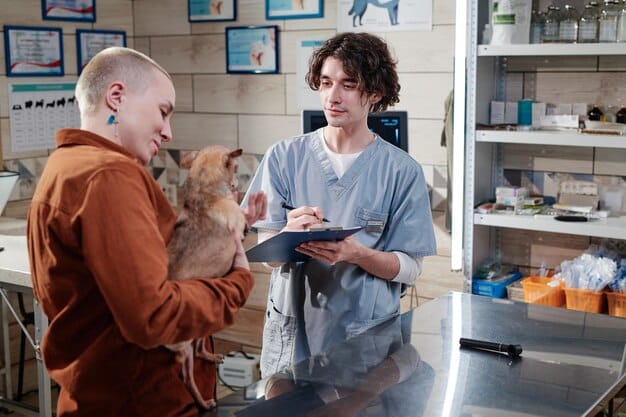
- Serious Illness in Pets: Salmonella can cause a range of symptoms, from mild gastrointestinal upset to severe systemic infections, which can be life-threatening.
- Human Health Risk: Handling contaminated pet food or interacting with an infected pet can lead to Salmonella infection in humans, particularly vulnerable populations like children, the elderly, and those with compromised immune systems.
- Financial Burden: Veterinary treatment for Salmonella infection can be costly, adding a financial strain on pet owners.
The FDA’s proactive approach in issuing recalls is designed to prevent widespread illness and protect both animal and human health. Staying informed and taking immediate action is crucial.
Identifying the Recalled Pet Food
One of the most critical steps in responding to a pet food recall is accurately identifying whether you have the affected product. This involves carefully checking the brand name, product codes, and dates printed on the packaging.
Without precisely identifying the potentially contaminated food, the risk of exposing your pet to Salmonella remains high. Diligence in this step is paramount to safeguarding your pet’s well-being.
How do I locate the product codes and dates on the packaging?
Product codes and dates are typically printed on the bottom, side, or back of the pet food packaging. Look for information such as “Best By” dates, lot numbers, or manufacturing codes.
What brands are commonly affected by recalls?
While recalls can affect any brand, keep an eye on announcements related to brands known for manufacturing issues or those that have previously been subject to recalls. Regularly check the FDA’s website for updates.

- Check the Brand Name: Verify if the pet food brand you use matches the one listed in the recall announcement.
- Find the Product Codes: Locate the product codes, lot numbers, or manufacturing codes on the packaging and compare them to the recalled products.
- Compare Dates: Check the “Best By” or “Use By” dates to ensure your product falls within the specified date range in the recall notice.
Accurately identifying the recalled pet food is the first line of defense in protecting your pets from potential harm. Double-check the packaging and compare the information with the FDA’s recall announcement to ensure your pet’s safety.
Understanding Salmonella and Its Risks
Salmonella is a type of bacteria that can cause illness in both animals and humans. Understanding how it spreads, its symptoms, and the potential health risks is essential for taking preventive measures.
Salmonella infections can range from mild to severe, and without proper care, they can lead to serious complications. Knowing what to look for can help you seek timely veterinary or medical attention.
How does Salmonella spread?
Salmonella spreads through contaminated food, water, or contact with infected animals. Poor hygiene practices, such as inadequate handwashing, can also contribute to the transmission.
What are the symptoms of Salmonella infection in pets?
Symptoms in pets can include diarrhea, vomiting, fever, loss of appetite, and lethargy. Some pets may carry the bacteria without showing any symptoms.
Being aware of the symptoms and potential health risks associated with Salmonella is crucial for prompt detection and treatment. Consult your veterinarian immediately if you suspect your pet has been exposed to contaminated food or shows signs of infection.
Immediate Steps to Take if You Have Recalled Food
If you have identified that you possess pet food subject to the FDA recall, it is essential to take immediate steps to mitigate any potential risks. This includes safely disposing of the contaminated food and thoroughly cleaning any surfaces it may have come into contact with.
These measures are crucial to prevent Salmonella from spreading and causing illness in your pets or household members. Acting quickly and responsibly can significantly reduce the risk of infection.
How should I dispose of the recalled pet food?
Dispose of the recalled pet food in a sealed bag and place it in a secure trash receptacle to prevent animals or humans from accessing it. Wash your hands thoroughly afterward.
What cleaning products are effective against Salmonella?
Use a diluted bleach solution (1 tablespoon of bleach per gallon of water) to clean and disinfect surfaces that have come into contact with the recalled pet food. Ensure proper ventilation during cleaning.
Taking swift and thorough action when you have recalled pet food is paramount to protect your pets and your family from the risk of Salmonella infection. Following these steps will help minimize the risk and ensure a safe environment.
Preventative Measures to Protect Your Pets
Preventing Salmonella contamination involves several proactive measures, including careful handling of pet food, maintaining good hygiene, and storing food properly. By adopting these habits, you can significantly reduce the risk of your pets contracting Salmonella.
Consistent preventive practices are key to maintaining a safe and healthy environment for your pets. Make these measures a routine part of your pet care.
How should I properly store pet food?
Store pet food in airtight containers in a cool, dry place to prevent bacterial growth. Avoid storing food in areas prone to moisture or extreme temperatures.
What are the best hygiene practices for handling pet food?
Always wash your hands with soap and water before and after handling pet food. Use clean bowls and utensils, and avoid leaving food out for extended periods.
By consistently following these preventive measures, you can create a safer environment and reduce the risk of Salmonella infection for your beloved pets.
Consulting with Your Veterinarian
If you suspect that your pet has consumed recalled food or is showing symptoms of Salmonella infection, consulting with your veterinarian is crucial. They can provide proper diagnosis, treatment, and guidance for managing the condition.
Early veterinary intervention can make a significant difference in your pet’s recovery. Do not hesitate to seek professional medical advice if you have concerns about your pet’s health.
What information should I provide to my veterinarian?
Provide your veterinarian with detailed information about the type of pet food your pet consumed, the symptoms they are experiencing, and any recent changes in their behavior or diet.
What treatment options are available for Salmonella infection in pets?
Treatment options may include fluid therapy to combat dehydration, antibiotics to fight the infection, and supportive care to manage symptoms. Your veterinarian will determine the most appropriate course of treatment based on your pet’s condition.
Timely consultation with your veterinarian is essential for ensuring your pet receives the best possible care and outcomes in the event of a Salmonella infection. Trust their expertise and follow their guidance for your pet’s well-being.
| Key Point | Brief Description |
|---|---|
| 🚨 FDA Recall | Urgent pet food recall due to Salmonella risk. |
| 🔍 Identify Food | Check brand, codes, and dates on packaging. |
| ⚠️ Salmonella Risks | Diarrhea, vomiting, fever in pets; human health risks. |
| 🧤 Preventative Measures | Proper food storage, good hygiene, regular cleaning. |
FAQ
▼
Safely dispose of the recalled pet food in a sealed bag and disinfect any surfaces it may have touched, such as bowls and storage containers. Wash your hands thoroughly.
▼
Salmonella can cause symptoms such as diarrhea, vomiting, fever, and lethargy in pets. Some pets may carry the bacteria without showing signs of illness.
▼
Yes, humans can contract Salmonella from handling contaminated pet food or interacting with infected animals. Always wash your hands after handling pet food.
▼
Store pet food in airtight containers, maintain good hygiene, clean bowls regularly, and cook food to proper temperatures to minimize the risk of contamination.
▼
Consult your veterinarian if you suspect your pet has consumed recalled food or is showing symptoms of Salmonella infection, so they can receive proper diagnosis and treatment.
Conclusion
Staying informed and taking immediate action in response to the urgent alert: FDA recall of popular pet food brand due to Salmonella contamination is vital for safeguarding the health and well-being of your pets. By identifying recalled food, understanding Salmonella risks, and adopting preventive measures, you can create a safer environment for your beloved companions.
